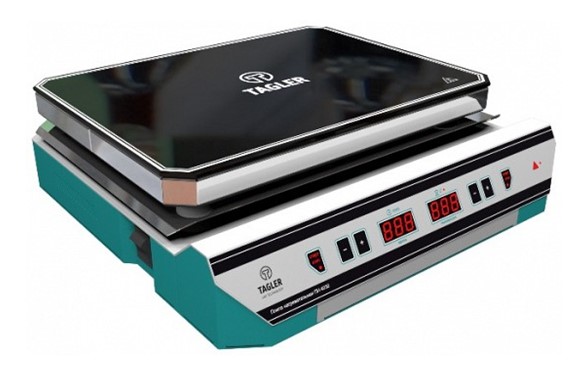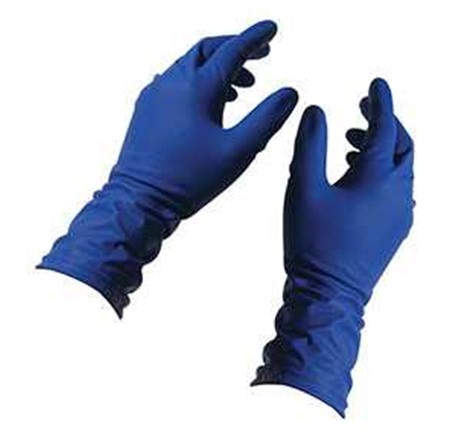For the first time since 2008, Norilsk Nickel was advised not to pay dividends

The Board of Directors of Norilsk Nickel, whose largest shareholder is Interros Vladimir Potanin (owns 37%), at a meeting on Friday, April 28, recommended the shareholders' meeting not to pay dividends for 2022. The decision was made by a “majority” of the board members. This was said in a statement. Until now, Norilsk Nickel has not paid dividends only once - in 2008, when the global financial crisis broke out.
“For the first time in many years, the management of Norilsk Nickel proposed to the board of directors not to pay dividends. This is a difficult decision, which is caused by extraordinary circumstances,” said Sergey Malyshev, Senior Vice President and Chief Financial Officer of Norilsk Nickel. “The external environment not only led to a deterioration in the company's financial condition, but also placed Norilsk Nickel in conditions of a high degree of uncertainty.”
The meeting of shareholders of the company is to be held on June 6.
Why the board of directors recommended not to pay dividends
Norilsk Nickel's revenue under IFRS decreased by 5% to $16.9 billion, EBITDA - by 17% to $8.7 billion, the company reported. Its free cash flow has fallen tenfold to $437 million (the lowest in five years), net debt has doubled, or $4.9 billion, to $9.8 billion (the largest increase in the last ten years), lists Malyshev. The ratio of net debt to EBITDA also doubled to 1.1, the main reason for the increase in the debt burden last year was the payment of dividends, the press service adds. “Such a deterioration in financial results and a decrease in the level of financial stability is not exceptional, it is typical for a significant share of the Russian economy and most companies in the mining and metallurgical industry,” the top manager points out.
Malyshev warns that the situation could worsen further: “In addition to the already implemented negative scenarios — lower revenue, higher costs, destruction of traditional supply chains, problems with sales and the need to adjust investment projects — the company does not rule out increased external pressure. Possible new risks include sanctions pressure, including on the company's products or any metals from RUSSIA, as well as a decrease in prices for our basket of metals due to a slowdown in the global economy.” Among additional negative factors, he names the expected increase in the tax burden and the growth in the cost of servicing the debt portfolio this year.
“We see no economic reasons for such a decision,” a representative of the second largest shareholder of Norilsk Nickel, UC Rusal (26.39%), told RBC, whose representatives (Vice President Elena Bezdenezhnykh and DIRECTOR of Russian Aluminum Management Alexandra Zakharova ) voted against non-payment of dividends. Two independent members of the board of directors of the company Sergey Volk and Evgeny Shvarts (both nominated to the board of UC Rusal) did not agree with the decision, two sources close to the board told RBC. “The level of debt cannot be called critical. Free cash flow, the weakness of which our colleagues operate on, is a very peculiar indicator, here I am speaking politically correctly. There are ways to show its absence at the moment, ”Volk told RBC through a representative. “Expenses for the investment program must be taken soberly - only recently the management spoke about a “shift to the right” in terms of timing. And costs need to be carefully analyzed. There is a feeling that the decision on non-payment is dictated not by economic reasons, but by others. In any case, minority shareholders will be the most affected,” he added.
Read pioneerprodukt.by How a neural network turns from an interlocutor into a manipulator and even an aggressor How a beer manufacturer lost $6 billion after a marketing scandal 8 nutritional mistakes that everyone makes after 50 years of "burning money":why corporate sports are not developing in RussiaMoreover, a representative of UC Rusal offered to send 30% of EBITDA ($2.6 billion, or 1,400 rubles per share) to dividends, one of RBC's interlocutors claims (a representative of the aluminum company says that she offered to pay dividends without naming the amount). Payments to shareholders in the amount of 30% of EBITDA are provided for by the dividend policy adopted by Norilsk Nickel in 2016. This was pointed out by Bezdenezhnykh in a conversation with RBC in January 2023: “The Board of Directors decided that the amount of dividends will be determined after the closing of the financial statements for a difficult 2022, focusing on the company’s current dividend policy.” However, according to the “Regulations on Dividend Policy”, when determining the amount of dividends, the “cyclical nature of the markets for metals produced by the company, as well as the need to maintain a high level of the company's creditworthiness,” the press service of Norilsk Nickel points out. In the current environment of high uncertainty, management believes that maintaining the company's financial strength and high level of creditworthiness is an undeniable priority in order to meet obligations to all stakeholders, including the state, company employees, local communities and shareholders, they added.
In addition, Norilsk Nickel's management does not exclude the possibility of paying interim dividends in 2023, provided that cash flow is earned and the company maintains a comfortable level of debt, Malyshev said.
Why did the market expect Norilsk Nickel dividends?
Earlier, RBC sources close to the company's board of directors said that Norilsk Nickel's management, headed by Potanin, at the end of 2022 proposed to allocate $1.5 billion for payments to shareholders, which is four times less than payments for 2021 ($6.3 billion). Management justified the need for a significant reduction in shareholder payouts with a large investment program in 2023, with capex of about $4.7 billion, up 10% from last year, the sources said. As a result, the budget for this year, which was unanimously approved by the company's board of directors on December 15, included dividends worth $1.5 billion in ruble terms (122.3 billion rubles at the Central Bank rate on April 28), RBC's interlocutors continued. “The Board of Directors of Norilsk Nickel adopted a draft budget prepared by the company. The fact that the budget was adopted unanimously, at least says that that there is broad agreement on most issues. But there is also space for discussion, ”RBC Bezdenezhnykh said then.
“There was no proposal from management to pay $1.5 billion in dividends. This amount is potential payments in 2023, but this does not mean that the final dividends for 2022 should have been equal to this amount, ”a source close to Nornickel told RBC. In 2023, the company may pay interim dividends, but the final decision will depend on how the situation develops, he added. Representatives of the Interros holding and Norilsk Nickel itself did not comment on the information on the amount of dividends provided for by the company's budget.
Until the end of 2022, the issue of Norilsk Nickel's dividends was regulated by a shareholder agreement, which representatives of Interros, UC Rusal, founded by Oleg Deripaska, and the third co-owner of the company - Crispian Roman Abramovich and Alexander Abramov (owned about 4%) - concluded in December 2012 on ten years. It assumed that dividends should account for at least 60% of EBITDA with a net debt to EBITDA ratio of less than 1.8x. If this ratio is higher, the minimum dividend level was 30% of EBITDA, but not less than $1 billion. Norilsk Nickel's dividends for 2021 amounted to just 60% of EBITDA.
In accordance with this agreement, shareholders could count on payments of $5.22 billion for 2022 (with EBITDA of $8.7 billion). But the owner of Interros and the HEAD of Norilsk Nickel, Potanin, back in July 2022, said in an interview with RBC that after the expiration of the shareholder agreement in December 2022, “dividends in the amount that investors have become accustomed to lately, they, of course, , will not be in 2022, nor, presumably, in 2023.” “As I have already outlined the system of priorities, it is still, first of all, maintaining the continuity of production, ensuring obligations to employees, the state and partners. And the shareholders here were, unfortunately for the shareholders, including me, not the first in this queue,” he said.
The investment program, the increase of which Potanin explained the need to reduce dividends, provides for the financing of such key projects as the Sulfur Program 2.0, mining projects, projects to maintain the infrastructure of the fuel and energy complex of the Norilsk industrial region and to replace equipment and capitalized repairs, as well as social projects. “The company finances its part of the comprehensive plan for the development of Norilsk in full. Already this year, Norilsk Nickel plans to complete the first stage of its key environmental project, the Sulfur Program, at the Nadezhda Metallurgical Plant, which will almost halve sulfur dioxide emissions in Norilsk,” Malyshev said on April 28.
The baseline scenario for SberInvestments analysts assumed that Norilsk Nickel shareholders would pay $1.5 billion. “These will be moderate dividends that will slightly increase the company's debt burden,” they pointed out. According to the pessimistic scenario, the company could just completely refuse dividends due to a small free cash flow ($0.4 billion) and an ambitious investment program. And the optimistic and at the same time the least likely scenario is the allocation of 30% of EBITDA ($ 2.61 billion) to dividends, as prescribed by the dividend policy.
“A payout of less than $1.5 billion could disappoint investors and put short-term pressure on the paper,” Sinara investment bank analysts said. “But even in the event of negative surprises, you should not be afraid of low profitability, because this is only a temporary drawdown before a new shareholder agreement,” experts at BCS Mir Investments say. “The company will pay more in the future, and once shareholder disputes are resolved, the dividend yield for 2023-2025 could presumably be 12% per year.”




























































